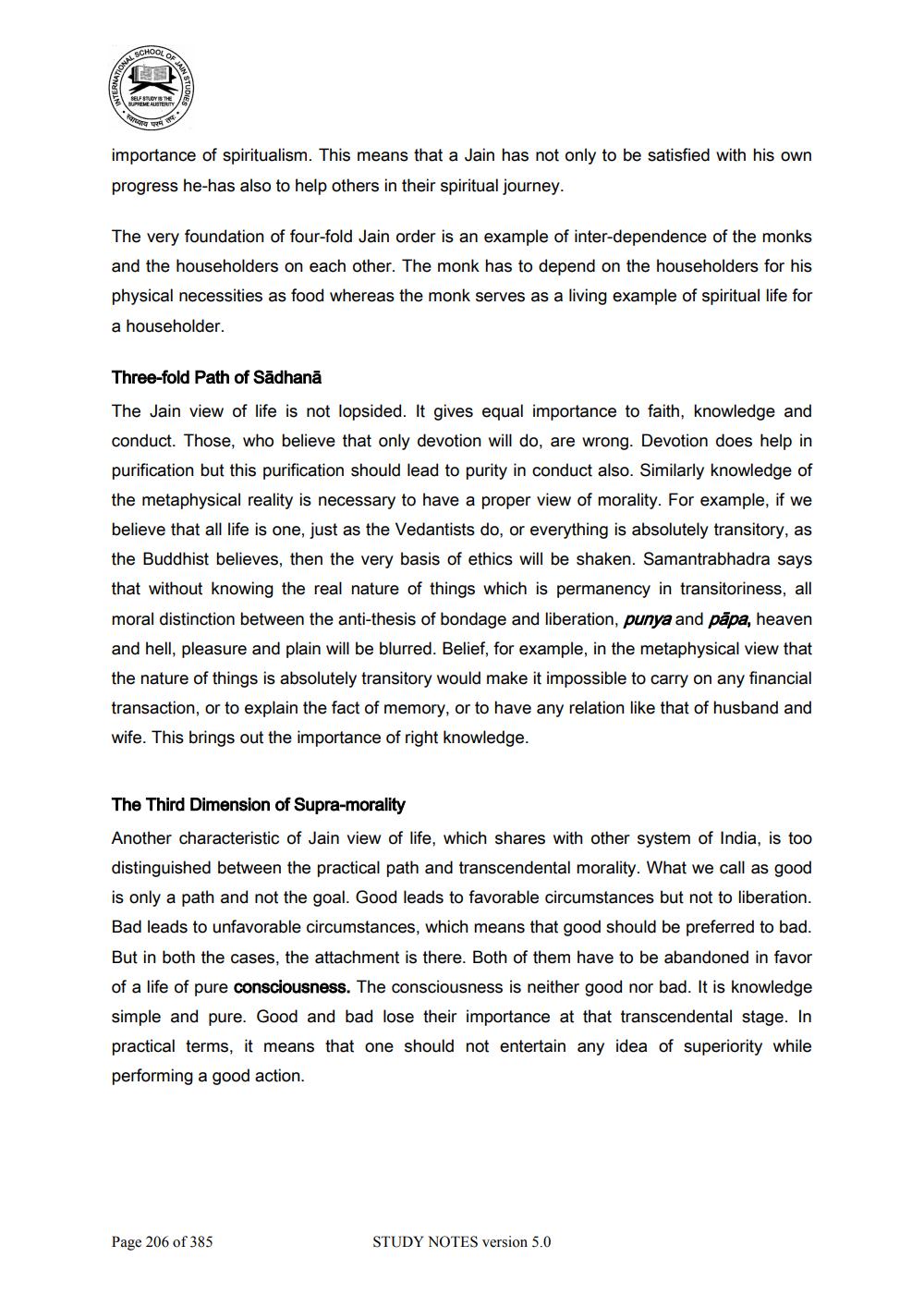________________
importance of spiritualism. This means that a Jain has not only to be satisfied with his own progress he has also to help others in their spiritual journey.
The very foundation of four-fold Jain order is an example of inter-dependence of the monks and the householders on each other. The monk has to depend on the householders for his physical necessities as food whereas the monk serves as a living example of spiritual life for a householder.
Three-fold Path of Sādhanā
The Jain view of life is not lopsided. It gives equal importance to faith, knowledge and conduct. Those, who believe that only devotion will do, are wrong. Devotion does help in purification but this purification should lead to purity in conduct also. Similarly knowledge of the metaphysical reality is necessary to have a proper view of morality. For example, if we believe that all life is one, just as the Vedantists do, or everything is absolutely transitory, as the Buddhist believes, then the very basis of ethics will be shaken. Samantrabhadra says that without knowing the real nature of things which is permanency in transitoriness, all moral distinction between the anti-thesis of bondage and liberation, punya and pāpa, heaven and hell, pleasure and plain will be blurred. Belief, for example, in the metaphysical view that the nature of things is absolutely transitory would make it impossible to carry on any financial transaction, or to explain the fact of memory, or to have any relation like that of husband and wife. This brings out the importance of right knowledge.
The Third Dimension of Supra-morality Another characteristic of Jain view of life, which shares with other system of India, is too distinguished between the practical path and transcendental morality. What we call as good is only a path and not the goal. Good leads to favorable circumstances but not to liberation. Bad leads to unfavorable circumstances, which means that good should be preferred to bad. But in both the cases, the attachment is there. Both of them have to be abandoned in favor of a life of pure consciousness. The consciousness is neither good nor bad. It is knowledge simple and pure. Good and bad lose their importance at that transcendental stage. In practical terms, it means that one should not entertain any idea of superiority while performing a good action.
Page 206 of 385
STUDY NOTES version 5.0




